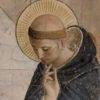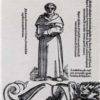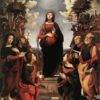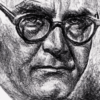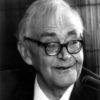Category: Evangelical Calvinist
Writings from the blog: Athanasian Reformed (aka The Evangelical Calvinist). Senior Reformed scholars present a coherent and impassioned articulation of Calvinism for today’s world.
Why are so many people opposed to Calvinism Steven Lawson? “Cuz they don’t know their Bibles”
Questioner: Why are so many people against Reformed/Calvinist theology? Steven Lawson: Because they don’t know the Bible; it’s not that they know too much of the Bible, but too little that leads them to the conclusion that Calvinism isn’t viable (my paraphrase). To view the whole exchange on the above click here. The respondents also include the late R.C. Sproul and John MacArthur. None of this is surprising, of course Lawson et al. will claim that people reject their version of Calvinism because, as he claims, people don’t know their Bibles. It is hard to fathom how folks can survive…
Human Freedom in Triumph Over Hercules’ ‘Synergistic and Monergistic’ Ways
What does it mean to be genuinely and humanly free? Must we settle for some philosophical abstraction arrived at like libertarian free agency (aka “freewill”), or on the determinist side, some form of what is often referred to as compatibilism? Do you believe that you have freewill; and if you do, how do you define freewill (as a Christian) before God? While this might seem a knotty discussion, nonetheless, it is significant and impinges on everyone’s daily life. According to my reading of the Apostle Paul to be humanly free is to be for God. Since only God, ultimately, has…
Why Thomas Aquinas is Not the Protestant’s Savior: On His Doctrina of Grace
Thomas Aquinas, the Angelic Doctor of the Roman Catholic church, is a Doctor of Theology located in the 13th century. When this is appreciated, things go better. If we could look at him, purely historically, this would be a better way. But instead, people, in particular, Protestant theologians are attempting to retrieve Aquinas’ theology, and the broader Thomist mantle in general, for what they see as a necessary corrective for the evangelical turn into heterodox and heretical positions in regard to doctrine and its subsequent praxis as it is applied to the daily lives of its adherents. But is Aquinas…
Luther’s Kerygmatic God Versus the Speculative god of the Thomists
The Christian world needs a revival! It needs to come to a genuine knowledge of God. Not a speculative knowledge, as those retrievers of Aquinas would have it; but a concrete known knowledge of God gifted to us in God’s Self-exegesis in Jesus Christ. When God becomes a predicate of a notional ‘godness’ that ‘we’ (think the philosophers) connive, God simply becomes a projection of our own faces (Ludwig Feuerbach knew this well). But this is the God that the evangelical Reformed types these days are introducing people to. Not the God of the Bible revealed in Jesus Christ, but…
The Good News that We Are Sinners: The Incarnation is Greater than Sin
Jesus is our life; He is God’s humanity all the way down. ‘He who knew no sin assumed sin for us that we might become the righteousness of God in Him.’ Our sin is ever before us, but it is only now before us in the glorified face of Jesus Christ. We can never deny that we were, and continue to be (in this in-between) sinners, insofar that the humanity of God bears witness of this reality to us all our live long days. But it is this grace of God that has shown up for us in these last…
St. Bernard of Clairvaux as the Patron Saint of Luther and Calvin, Not Thomas
A friend just reminded, once again, of the role that St. Bernard of Clairvaux played in the formation of both Martin Luther’s and John Calvin’s theology, respectively; the latter quoted or alluded to Clairvaux in his Institutes more than any other author. It was this spiritual, even mystical tradition that stood in the background to the foremost of these magisterial Protestant Reformers; it wasn’t Thomas Aquinas and Aristotle. I am bringing this up within the ambit of my last post with reference to the retrieval work being done by people like Matthew Barrett and Craig Carter, for the Baptists. When…
On Barth’s and Paul’s Purported ‘Christian Universalism’ in Sachkritik
Karl Barth is often said to be a proponent of Christian universalism. The logic is that Barth’s doctrine of election, whether he likes it or not, commits him to affirming some form of a Christian universalism (i.e., the notion that all people of all time will eventually freely submit to the reality that Jesus Christ is Lord; even if that finally only happens in hell itself). But Barth adamantly rejected this supposed necessity of his theological trajectory. As Douglas Campbell writes: Barth has often been accused of universalism, but he steadfastly denied it (see the final paragraph of CD III/2),…
All of Humanity in Christ
The incarnation (homoousion) implies that all of humanity is re-created in the image of God, insofar that Christ is the second and greater Adam. In other words, the incarnation works from the reality that Jesus is the image of God (Col. 1:15) for us, and as such as He assumes our humanity as His own, He re-creates and exalts humanity in His humanity for us; just as His humanity is archetypal humanity, such that what it means to be genuinely human before God, is who Jesus is for us in His vicarious humanity. This presents us with what might be…
The Sermon on the Mount as the Postscript of the Covenant of Grace
Covenant theology in confessional Reformational theology is its hermeneutical key. Karl Barth, a Reformed theologian, doesn’t stray from this key, but as is typical with Barth he reformulates Covenant (or Federal) theology such that Jesus Christ becomes the key, the regulative ground and condition of the covenant itself. Indeed, rather than operating with two aspects of the covenant—i.e., the covenant of works, covenant of grace—as classical Covenantal theology does, Barth retextualizes this framework by reducing the two covenants into one; viz. the covenant of grace. For Barth, the covenant of grace is the supralapsarian (before/above creation)/fall) basis, the inner reality…
Abortion as the Logic of the Pagan’s Power
When approaching a discussion on abortion, even in so-called conservative Christian circles, at least traditionally, you will often hear people arguing that abortion shouldn’t become a single-voter issue. In other words, these people like to trick themselves into thinking that who we vote for, based on their policies, is bigger than the doctrine and practice of abortion. These people like to lull themselves into the idea that they are more nuanced, that they have greater sophistication, that they understand the complexity of life better than those who would argue that, indeed, abortion, all by itself is worthy of reducing a…


